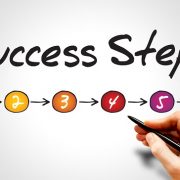Pay Off Your Mortgage Faster (Part 2)
Last month we shared Part 1 of our guide to Paying Your Mortgage Off Faster.
Here is Part 2 with more of our top tips as well as even more tools to help you.
1. Offset It
If you can, use an offset account. A mortgage offset account is linked to your loan. The interest payable on the loan from month to month is calculated by deducting what is in your offset account from your current loan. For example, if your mortgage is $500,000 and your offset account has $10,000 in it, you will only pay interest on the remaining $490,000.
An offset account will save interest while still giving you access to your savings. It also means investors can preserve the tax deductibility of the mortgage.
Click here to calculate the savings with our Stars Broking Loan Offset Calculator
2. Understand The Fees
When reviewing your home loan, the interest rate is often what people focus on. However many don’t realise that fees can have a significant impact on how much you pay in the long run. It is important to do your research, especially when you are taking steps to pay down your loan quicker. Make sure that your lender doesn’t charge fees for extra repayments, refinancing, or any other steps you take in an attempt to save on your loan.
3. Check Your Mortgage Still Fits
Take some time each year to complete a health check on your mortgage and review what is on offer in the market. Ultimately, your mortgage needs to suit you and your circumstances, or you will wind up paying too much. If you think your current loan no longer matches your situation, speak to your finance broker. They will be able to find the right product for you, as well as negotiating appropriate rates on it.
Click here to calculate the savings with our Stars Broking Loan Comparison Calculator
To learn more or to find a loan that lets you pay down your mortgage balance sooner, call Marco Scannone from Stars Broking Services 0405252808 or click here.







